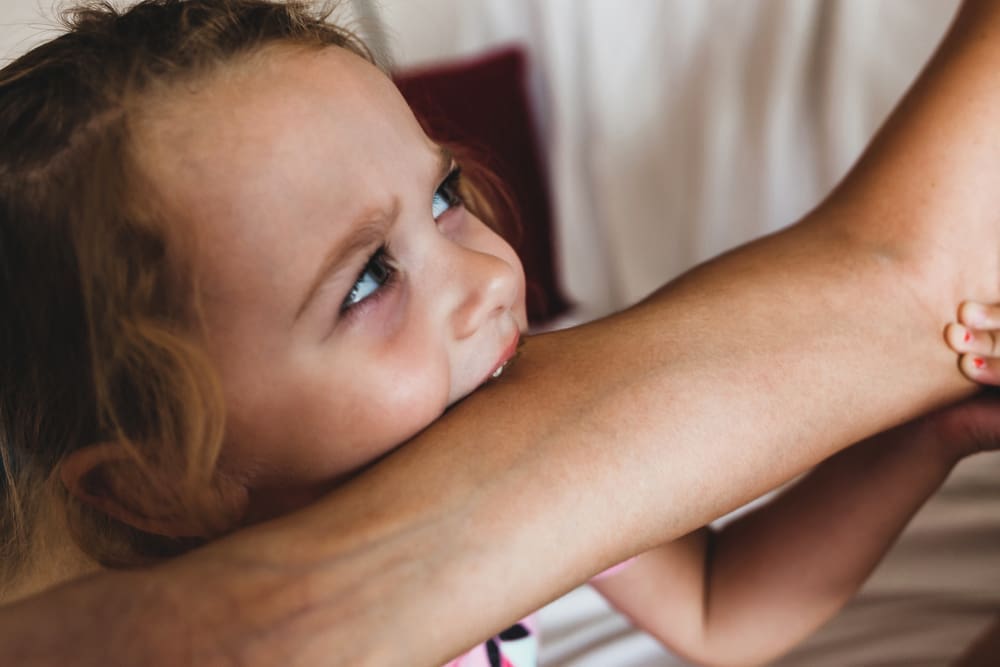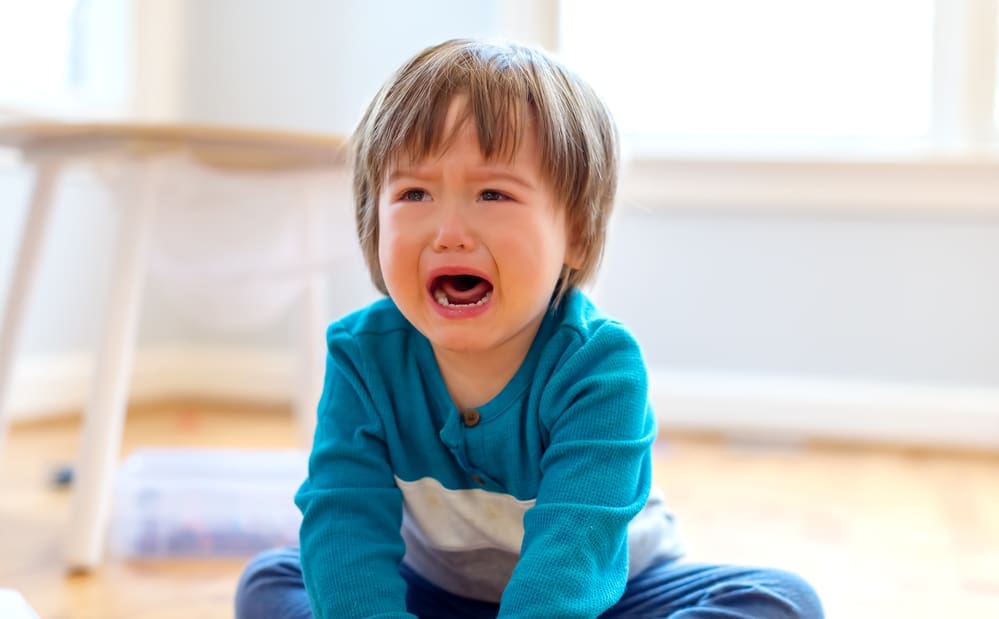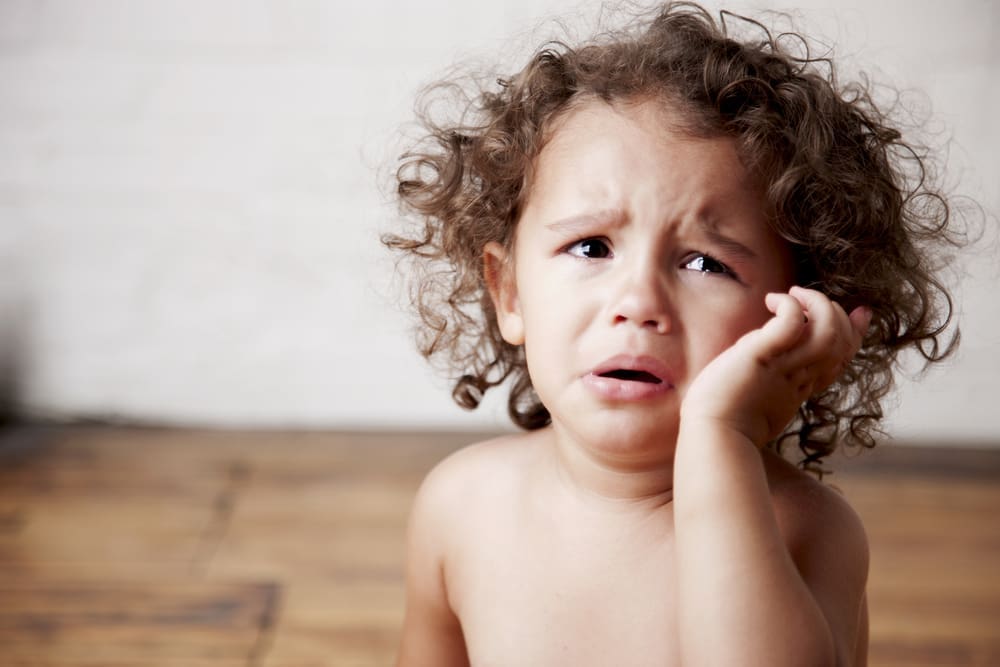Toddler Biting
Why They Do It and How To Make It Stop

You may be surprised to learn that is is quite normal for toddlers to go through a ‘biting’ phase somewhere between the ages of 1 and 3 years old. But why do toddlers bite?
Once you understand the underlying reason why toddlers suddenly are biting everything and everyone in sight, it becomes easier to come up with potential solutions to this problem. Here are some of the most common triggers for toddlers:
Inability to communicate
Before children are able to talk, they express themselves through their actions. It takes time for a toddler to learn how to identify their emotions.
Teething
A toddler biting because they’re teething is not uncommon. It usually starts with younger toddlers, although it can persist after the teeth have come through because they like the feeling and/or attention that they receive because of it.
Experimentation
All toddlers are trying to understand the cause and effect of the world around them, and some children experiment with biting in order to get a reaction from you.
Imitation
It’s common for children to imitate one another and if your child sees another child bite someone, they may copy that behavior.
Lack of attention
Sometimes your toddler may feel that they aren’t getting enough attention from you. If you’ve been busy with a move, or new baby, or stressful life event, your child can feel when you’re emotionally less present. Since they can’t adequately verbalize their concerns, often your toddler will do whatever works to get your attention – even negative, so they can resolve their feelings of sadness or insecurity.
Overwhelmed or excited
If your child becomes over stimulated by crowds, lights or sounds, such situations may trigger him. Similarly, excitement or things that make him extremely happy can make him bite out of sheer joy.
What You Can Do To Help Them
1. Start teaching them how to name their emotions and so they can begin to put those feelings into words. Saying something like “You seem really angry that I removed your shoes” or “You seem frustrated because you don’t want to share that toy,” shows them how you want them to communicate with you when they’re ready.
2. Teach them alternative coping mechanisms for when they’re feeling frustrated enough to bite. If your toddler seems angry, suggest that they make an angry face, squeeze a pillow, or jump up and down. While your toddler may still be too young to handle complex situations, it’s important to introduce concepts such as “stop” and “no” if they feel their boundaries are being breached and it may lead them to bite or lash out at another child.
3. If your little one is not yet able to speak coherently, teach them some basic sign language. Not being to communicate is very frustrating – this outlet could help bridge the communication gap until their language skills improve.
4. When your child is able to articulate their emotions, even if it is anger, praise them for it. Recognizing their emotions is the first step to learning how to handle and regulate them.
5. If your child is teething and you think that this may be the reason they are biting you and everyone around them, be sure to keep teething rings on hand. If your child is past the teething stage but you still feel they are biting because it eases their discomfort in their teeth or gums, take them to a dentist. You will want to rule out any cavities or other dental issues as a reason for their biting.
IF YOUR CHILD BITES SOMEONE…
DON’T
Label them. Don’t call your child bad – remember it is the behavior that is bad, not your child. If your child thinks you see them as bad, they may continue to act out with bad behavior.
Yell. Not only will you scare your child, your toddler may be curious enough to try to recreate that same reaction and bite you again. If you don’t create any drama around biting, your toddler will stop trying to seek your reaction.
React harshly. Physical punishment has not been shown to reduce biting. In fact, it only worsens your child’s behavior. Reacting with harshness can increase your toddler’s level of fear or anxiety instead of teaching them how to deal with it.
Bite back. It’s shocking to know that many parents bite their toddlers back – and think that this is a good idea. It’s traumatic for your child, and teaches them that violence is an acceptable solution.
DO
Separate: If your child bites another, separate them immediately.
Attend to the child who was bitten FIRST: Comfort and provide first aid to the child who has been bitten BEFORE you turn your attention to the biter. You are showing your child the importance of empathy and if they acted out for attention, this diverts it away from them and does not reinforce bad behavior
Address the bad behavior: Younger toddlers will likely be unable to make the connection between their biting and subsequent consequences to others. This improves as your toddler matures. Identify your child’s emotions saying something like “You seem angry – it is ok to be angry, but you cannot bite anyone. Come to me when you feel this way and I will help you, insh’Allah.”
Redirect: Once the situation has calmed down, move on. Keep your message consistent and restate your rule for not biting when it comes up. Be brief in correcting your child’s behavior, and praise them when they show restraint or remorse.



